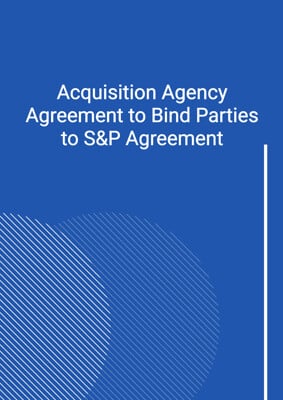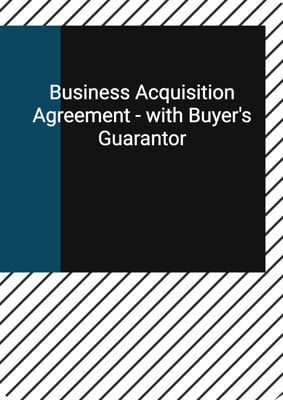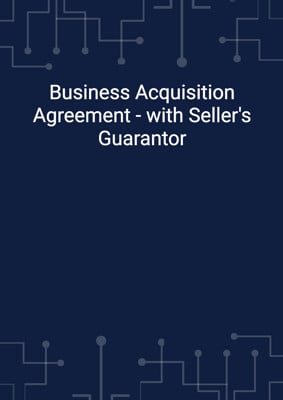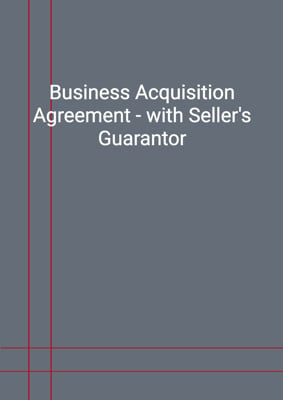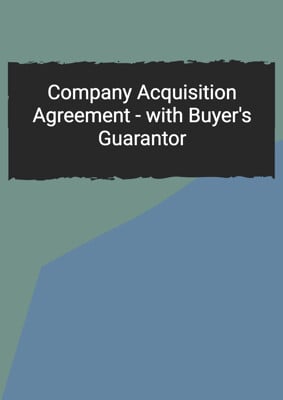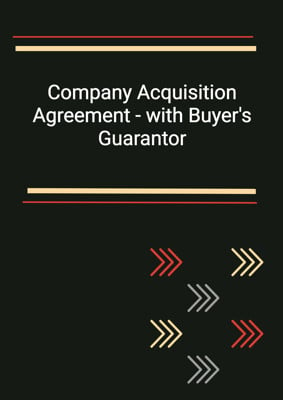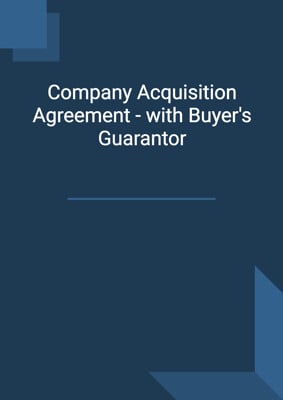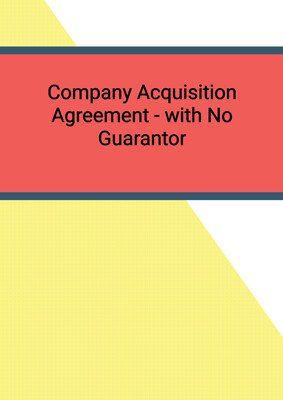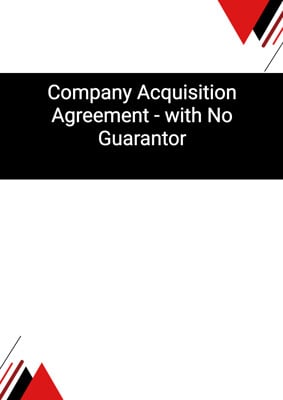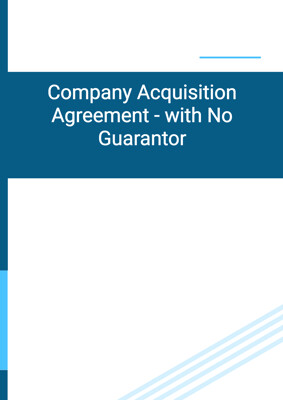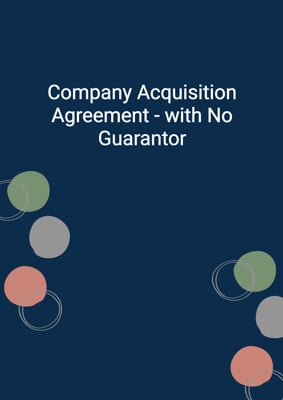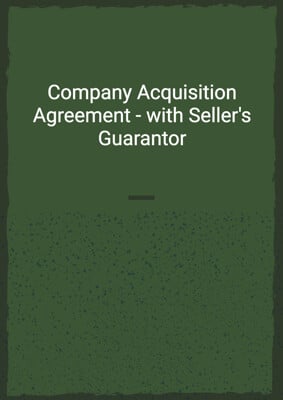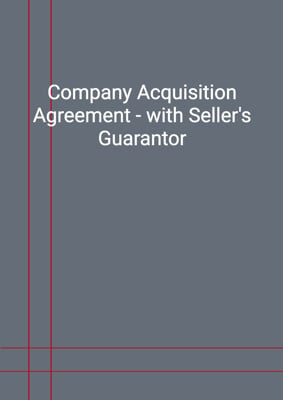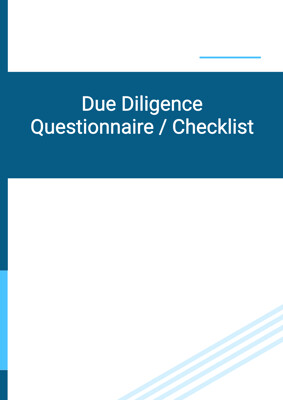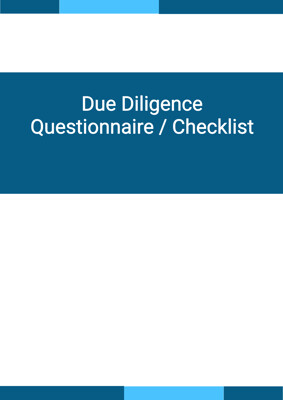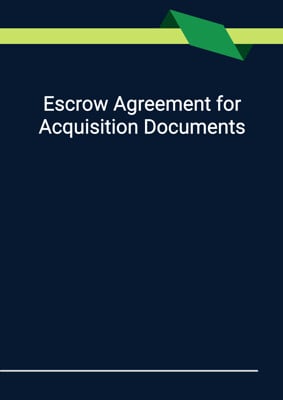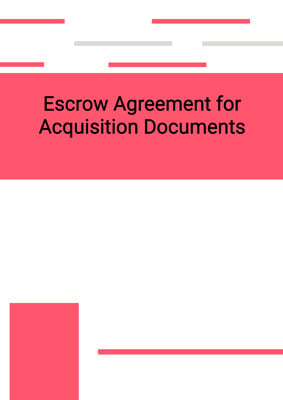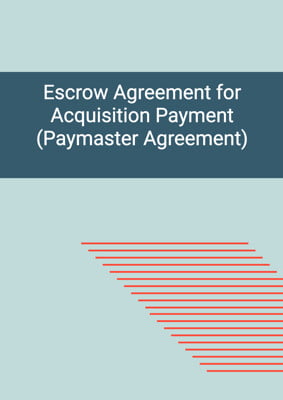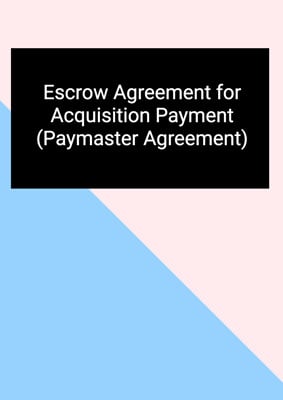
Acquisition Agency Agreement to Bind Parties to S&P Agreement
Buyer - Post Agreement
Appointment of a designated buyer (usually a local subsidiary) to purchase a company. The purpose of the agency agreement is to bind local buyers into the main agreement in relation to a multi-jurisdictional acquisition. This is drafted for the buyer and should be used after the execution of the main agreement.
How to Tailor the Document for Your Need?
01
Create Document
Fill in the details of the parties. You can click the "Fill with Member’s Information" button to complete it with information saved to your account.
02
Fill Information
Please fill in any additional information by following the step-by-step guide on the left hand side of the preview document and click the "Next" button.
03
Get Document
When you are done, click the "Get Document" button and you can download the document in Word or PDF format.
04
Review Document
The document should be signed by the authorised signatory (or directors of a company) and witnessed to complete the formality.
Document Preview
Document Description
The document titled 'Acquisition Agency Agreement to Bind Parties to S&P Agreement' is a legal agreement that is entered into between three parties: the buyer, the seller, and the designated buyer. The purpose of this agreement is to establish the designated buyer as the buyer of the target, as defined in the principal agreement. The designated buyer appoints the buyer as its agent to perform the principal agreement and enter into other transaction documents on its behalf. The buyer accepts this appointment and agrees to act as the agent for the designated buyer.
The document begins with a preamble that explains the background and context of the agreement. It states that this agreement is entered into in connection with the sale and purchase agreement between the buyer and the seller for the sale and purchase of the target. It also states that the designated buyer has been identified and is now an affiliate of the buyer, and that the parties agree that the designated buyer and the parties to the principal agreement have the same rights and obligations as if the designated buyer had existed when the principal agreement was executed.
The document then includes several clauses that define the terms and obligations of the parties. These clauses cover topics such as compliance with the principal agreement, the agency relationship between the designated buyer and the buyer, warranties and indemnities, variation of the agreement, severability of provisions, counterparts of the agreement, governing law and jurisdiction, and notices and service.
The document concludes with the signatures of the authorized representatives of the parties.
Overall, this document is important as it establishes the relationship between the buyer, the seller, and the designated buyer, and sets out the rights, obligations, and responsibilities of each party. It ensures that the designated buyer is recognized as the buyer of the target and appoints the buyer as its agent to perform the principal agreement. This agreement is crucial for the successful completion of the sale and purchase transaction and provides legal protection for all parties involved.
How to use this document?
1. Identify the parties: Enter the names and principal places of business of the buyer, seller, and designated buyer in the agreement. This ensures that all parties are clearly identified.
2. Understand the principal agreement: Familiarize yourself with the terms and provisions of the principal agreement, as this agreement is being entered into in connection with it. Ensure that you have a clear understanding of the obligations and responsibilities outlined in the principal agreement.
3. Appoint the buyer as agent: The designated buyer should irrevocably appoint the buyer as its sole agent to perform the principal agreement and enter into other transaction documents on its behalf. This appointment should be made in writing and should specify the scope of the agent's authority.
4. Comply with obligations: The designated buyer agrees to comply with the obligations that the buyer is obliged to procure under the principal agreement. Ensure that you fulfill these obligations for as long as and to the extent required by the principal agreement.
5. Understand the agency relationship: The buyer accepts the appointment as the agent of the designated buyer. Understand the rights, responsibilities, and limitations of this agency relationship. Ensure that you act in accordance with the instructions and authority given to you as the agent.
6. Indemnify the buyer: The designated buyer should agree to put the buyer in funds to make payments as contemplated in the principal agreement and indemnify the buyer against any costs incurred in relation to any claims under the principal agreement.
7. Follow the governing law and jurisdiction: Understand the governing law and jurisdiction specified in the agreement. Ensure that any disputes or legal matters arising from the agreement are resolved in accordance with the specified jurisdiction.
8. Serve notices properly: Any notices to be given under the agreement should be in writing and served in accordance with the specified methods. Ensure that you follow the correct procedures for serving notices to the relevant parties.
9. Seek legal advice if needed: If you have any doubts or questions regarding the agreement or its implications, seek legal advice from a qualified professional. It is important to fully understand the legal implications and consequences of entering into this agreement.
10. Keep a copy of the agreement: Once the agreement is executed, make sure to keep a copy of the signed agreement for your records. This will serve as proof of the agreement and can be referred to in case of any disputes or issues that may arise in the future.
Not the right document?
Don’t worry, we have thousands of documents for you to choose from:
